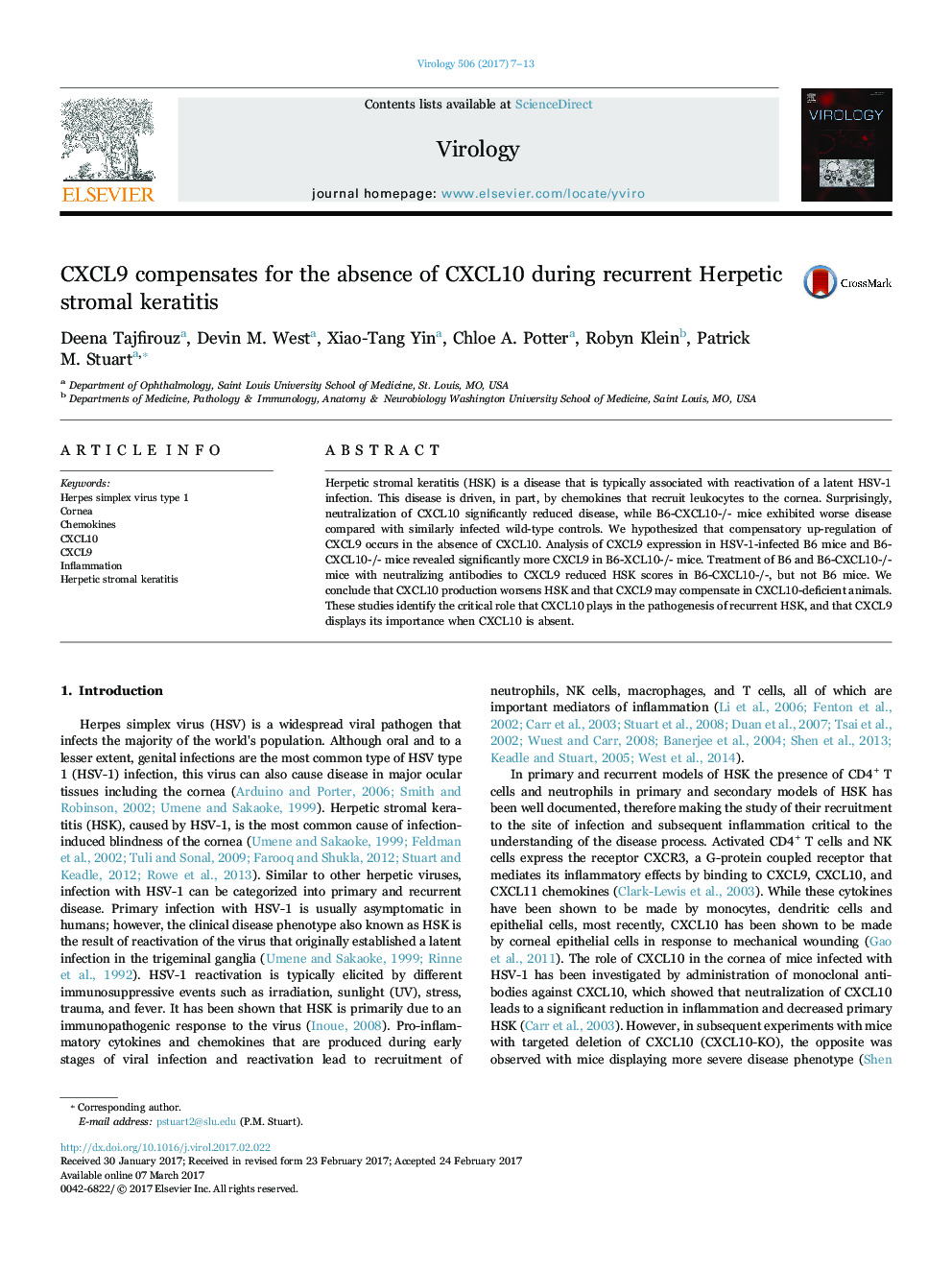| Article ID | Journal | Published Year | Pages | File Type |
|---|---|---|---|---|
| 5675101 | Virology | 2017 | 7 Pages |
•Herpetic stromal keratitis (HSK) is primarily a recurrent not acute disease.•Recurrent HSK is an immunopathologic attack on the cornea following reactivation.•Determining the factors that control this attack is critical to understanding HSK.•CXCL10 is critical to HSK while CXCL9 plays a similar role in the absence of CXCL10.•These findings could suggest potential therapeutic treatments for HSK.
Herpetic stromal keratitis (HSK) is a disease that is typically associated with reactivation of a latent HSV-1 infection. This disease is driven, in part, by chemokines that recruit leukocytes to the cornea. Surprisingly, neutralization of CXCL10 significantly reduced disease, while B6-CXCL10-/- mice exhibited worse disease compared with similarly infected wild-type controls. We hypothesized that compensatory up-regulation of CXCL9 occurs in the absence of CXCL10. Analysis of CXCL9 expression in HSV-1-infected B6 mice and B6-CXCL10-/- mice revealed significantly more CXCL9 in B6-XCL10-/- mice. Treatment of B6 and B6-CXCL10-/- mice with neutralizing antibodies to CXCL9 reduced HSK scores in B6-CXCL10-/-, but not B6 mice. We conclude that CXCL10 production worsens HSK and that CXCL9 may compensate in CXCL10-deficient animals. These studies identify the critical role that CXCL10 plays in the pathogenesis of recurrent HSK, and that CXCL9 displays its importance when CXCL10 is absent.
